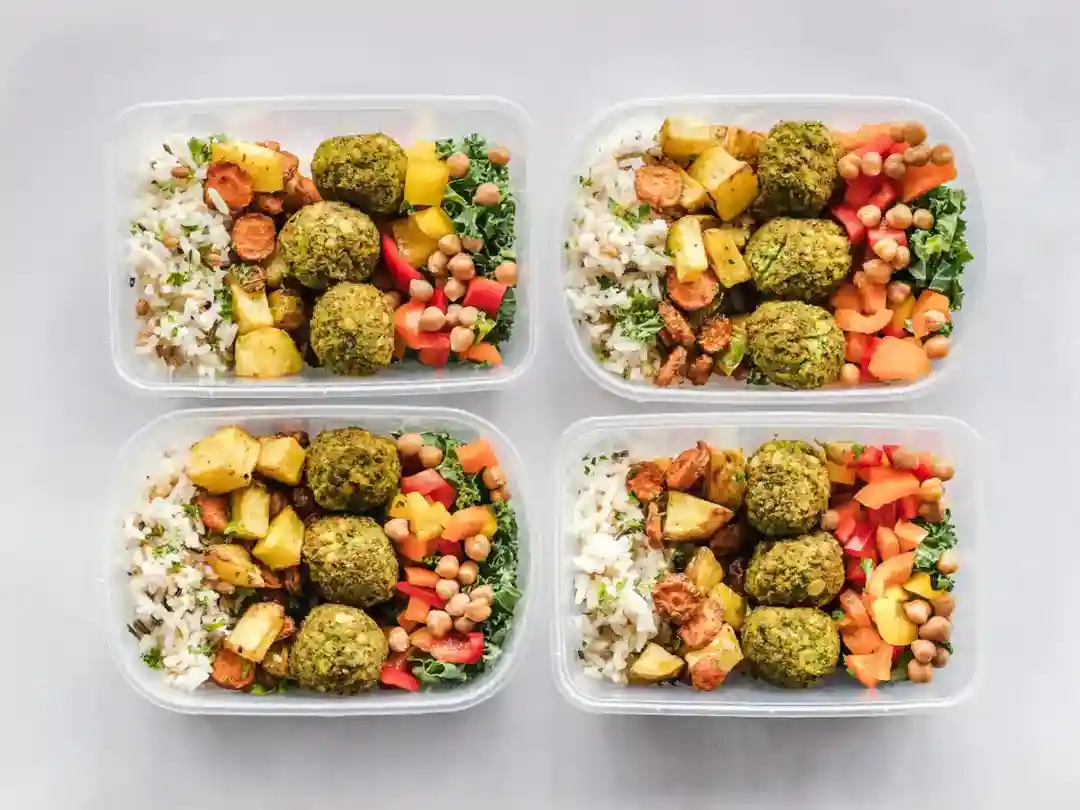Prediabetes & Diabetes: Your Guide to Healthy Eating

Balancing Blood Sugar and Kidney Health: The Ultimate Guide to Managing Diabetes and Chronic Kidney Disease
Nearly one in three american adults with diabetes also suffers from chronic kidney disease or ckd. The combination of these two health issues can make meal planning a daunting task. Although the diets for diabetes and ckd share many similarities there are key differences that are crucial to understand. This guide aims to provide you with the essential knowledge to navigate these dietary challenges. Diabetes and ckd diets often overlap because both conditions require careful management of blood sugar levels and fluid intake. However ckd patients need to limit their protein intake to reduce the strain on their kidneys whereas diabetics may require more protein to help manage blood sugar levels. Additionally individuals with ckd must be mindful of their sodium intake as excessive sodium can exacerbate kidney damage. Diabetics may not need to restrict sodium as strictly unless they also have high blood pressure. Additionally ckd patients must pay close attention to their phosphorus intake as high levels can lead to bone disease and further kidney damage. Phosphorus-rich foods include dairy products, meat, and fish, which are also high in protein. Therefore finding a balance between protein and phosphorus intake is crucial for individuals with both diabetes and ckd. As a result managing a diabetic diet while also dealing with chronic kidney disease requires careful planning and attention to details. By understanding the similarities and differences between these two diets individuals can make informed choices about their nutrition and improve their overall health.

How to Eat Like a Pro: A Diabetics Guide to Delicious, Balanced Meals
A healthy diabetic diet is surprisingly not all that different from a healthy diet for anyone else. Its about filling your plate with a rainbow of fruits vegetables healthy fats and lean proteins. And, of course, cutting back on salt, sugar, and those pesky refined carbs that sneak into our diets via cookies, crackers, and soda. Your individual carb goal is like a personal trainer for your diet. Its based on your age, how active you are, any medications youre taking, and a few other factors. By sticking to your meal plan you can keep your blood sugar levels in check and prevent further damage to your kidneys. Its like having your very own roadmap to a healthier you.

Protecting Your Kidneys: The Delicious, Balanced Diet Every Diabetic Should Know
With a ckd diet youll avoid or limit certain foods to protect your kidneys. Youll include other foods to give you energy and keep you nourished. Your specific diet will depend on whether you are in early-stage or late-stage ckd or if youre on dialysis.

How to Eat Like a Pro: A Diabetics Guide to Delicious, Balanced Meals
For chronic kidney disease ckd to be effectively managed its crucial to adopt a tailored diet that limits sodium phosphorus potassium and protein intake. With fresh homemade food you can control sodium levels in your diet. This approach not only helps lower blood pressure but also decreases fluid buildup in the body a common issue in kidney disease. It is a mineral that strengthens bones and supports overall health phosphorus is another nutrient to limit in a ckd diet. High levels of phosphorus can weaken bones and damage blood vessels eyes and hearts. Foods rich in phosphorus include meat dairy beans nuts whole-grain bread and dark-colored soda. Potassium essential for nerve and muscle function can accumulate in the blood and cause serious heart problems in individuals with ckd. Foods high in potassium include oranges potatoes tomatoes whole-grain bread and many other common foods. Apples, carrots, and white bread are lower in potassium. Your healthcare provider may recommend a potassium binder to help remove excess potassium from the body. Finally maintaining the right protein intake is vital in a ckd diet. Excessive protein can put additional strain on the kidneys potentially worsening the condition. Insufficient protein can however have negative health consequences. Your dietitian can help you determine the optimal combination and amount of protein to consume.

How to Eat Like a Pro: Delicious, Balanced Meals for Diabetics
Living with diabetes and chronic kidney disease ckd can be challenging especially when it comes to managing your diet. However its crucial to understand that a balanced diet can help you control your blood sugar levels and protect your kidneys. Your dietitian can provide you with personalized dietary advice but here are some general guidelines to get you started. Fruit you can enjoy strawberries cherries apples and plums. These are not only delicious but also packed with nutrients that can help manage your blood sugar levels and support kidney health. When it comes to vegetables cauliflower onions eggplant and turnips are great options. These vegetables are low in potassium which is beneficial for your kidneys and theyre also rich in fiber vitamins and minerals. When it comes to proteins lean meats such as poultry and fish eggs and unsalted seafood are excellent choices. These foods are rich in protein which is essential for maintaining muscle mass and overall health and they are low in sodium and phosphorus making them kidney-friendly. In addition to carbohydrate consumption white bread bagels sandwich buns unsalted crackers and pasta are available. Foods like these can help you manage your blood sugar levels and provide energy for your body. Finally, staying hydrated is crucial, and you can drink water, clear diet sodas, and unsweetened tea. These beverages are low in calories and sugar making them ideal for diabetes and ckd management. One effective way to manage both conditions is to switch from orange juice to kidney-friendly apple or grape juice when treating low blood sugar. This will give you the same blood-sugar boost with less potassium, which is beneficial for your kidneys.

Can a Diabetic Diet Help Manage Blood Sugar and Chronic Kidney Disease?
For those who are on dialysis chronic kidney disease ckd is a challenging phase late in the stage. Your nutritional needs will change significantly, especially your protein intake. Its important to eat more as your appetite can change due to the altered taste of food. Dialysis filters your blood like your kidneys do, but it doesnt work as efficiently. Fluid can accumulate in your body between treatments so you may need to limit your fluid intake. Be on the lookout for swelling around your eyes, legs, arms, or belly. If you have late-stage ckd your blood sugar levels may also improve. This could be due to changes in how your body uses insulin. However when youre on dialysis your blood sugar levels can increase. This is because the fluid used to filter your blood is high in glucose and sugar. Your need for insulin and other diabetes medicines will be unpredictable so your doctor will closely monitor you. A diabetic diet is crucial during this period to manage your blood sugar levels effectively.

How to Eat Like a Pro: Delicious, Balanced Meals for Diabetics
As you navigate the complex world of managing chronic kidney disease ckd and diabetes its essential to understand that your dietary needs will evolve over time. The dynamic nature of these conditions necessitates regular consultations with your dietitian to ensure you are always on the right track. By maintaining a close relationship with your healthcare provider you will not only receive personalized dietary advice tailored to your specific health requirements but you will also gain the confidence and support needed to effectively manage your meals. This pro-active approach will empower you to tackle any challenges that arise and ultimately achieve optimal health. In the realm of ckd and diabetes management a well-planned diet is more than just a means of sustenance it is a powerful tool in your arsenal against these conditions. By staying informed seeking professional guidance and making conscious dietary choices you can take control of your health and live a life that is not dictated by your conditions but rather enhanced by your proactive approach to managing them.

Whats the Secret to a Balanced Diabetic Diet?
When it comes to managing diabetes your diet plays a crucial role in maintaining your health. A balanced diabetic diet should include a variety of foods that provide essential nutrients while keeping your blood sugar levels in check. Lets go into the specifics. Firstly you should make room for plenty of fruits and vegetables. These non-starchy foods like spinach carrots and tomatoes can fill half of your plate and are great sources of fiber. Next, incorporate whole grains such as whole wheat, brown rice, barley, quinoa, and oats into your meals. These complex carbohydrates will help keep you full and provide sustained energy. Now lets talk about the lean proteins. Some of these include lean meats chicken turkey fish eggs nuts beans lentils and tofu. Foods like these will help you build and repair muscles organs and tissues of your body. It is also important to have healthy fats. These include nuts, avocados, and fish like salmon, mackerel, sardines, albacore tuna, herring, and trout. Alternatively you can use vegetable oils but try to limit your intake to 7 teaspoons 35 ml a day. Dont forget the dairy. Nonfat or low-fat dairy such as milk yogurt and cheese are great sources of calcium and protein. Aim for 2–3 servings per day. Choose drinks that have no added sugar or little or no sugar like water unsweetened tea or coffee or sparkling water. Reducing your serving sizes can also help you maintain a healthy weight and manage your blood glucose. Remember a well-planned diabetic diet can make all the difference in managing your condition. By incorporating these foods into your daily meals youll be on the right track to maintaining your health and managing your blood sugar levels effectively.

What is a Diabetic Diet and How Can it Help Manage Blood Sugar Levels?
In the realm of health and nutrition the term diabetic diet is often thrown around but what does it really mean?. A diabetic diet in essence is a personalized eating plan designed to manage blood sugar levels and maintain a healthy weight. Isnt it about deprivation or strict restrictions but rather its about making informed choices that cater to your unique nutritional needs. For individuals living with diabetes the goal is to balance the intake of carbohydrates proteins and fats. Carbohydrates which include sugar starches and fibers have the most significant impact on blood sugar levels. Thus, its crucial to consume them in moderation and choose complex sources like whole grains, fruits, and vegetables. Protein on the other hand plays a vital role in repairing and building tissues while fats provide energy and help absorb certain vitamins. A well-planned diabetic diet should also take into account the gi glycemic index of foods. The gi is a measure of how quickly the carbohydrates in a particular food raise blood sugar levels. Foods with a low gi such as whole grains and non-starchy vegetables are preferred because they cause a gradual increase in blood sugar allowing for better control. Moreover staying hydrated is essential in a diabetic diet. In diabetics drinking plenty of water helps regulate blood sugar levels and prevents dehydration which can lead to serious complications if. In conclusion a diabetic diet is not a one-size-fits-all approach. Its a tailored plan that considers an individuals specific nutritional requirements lifestyle and health goals. Through making conscious food choices and staying informed individuals with diabetes can effectively manage their condition and lead a healthy fulfilling life.